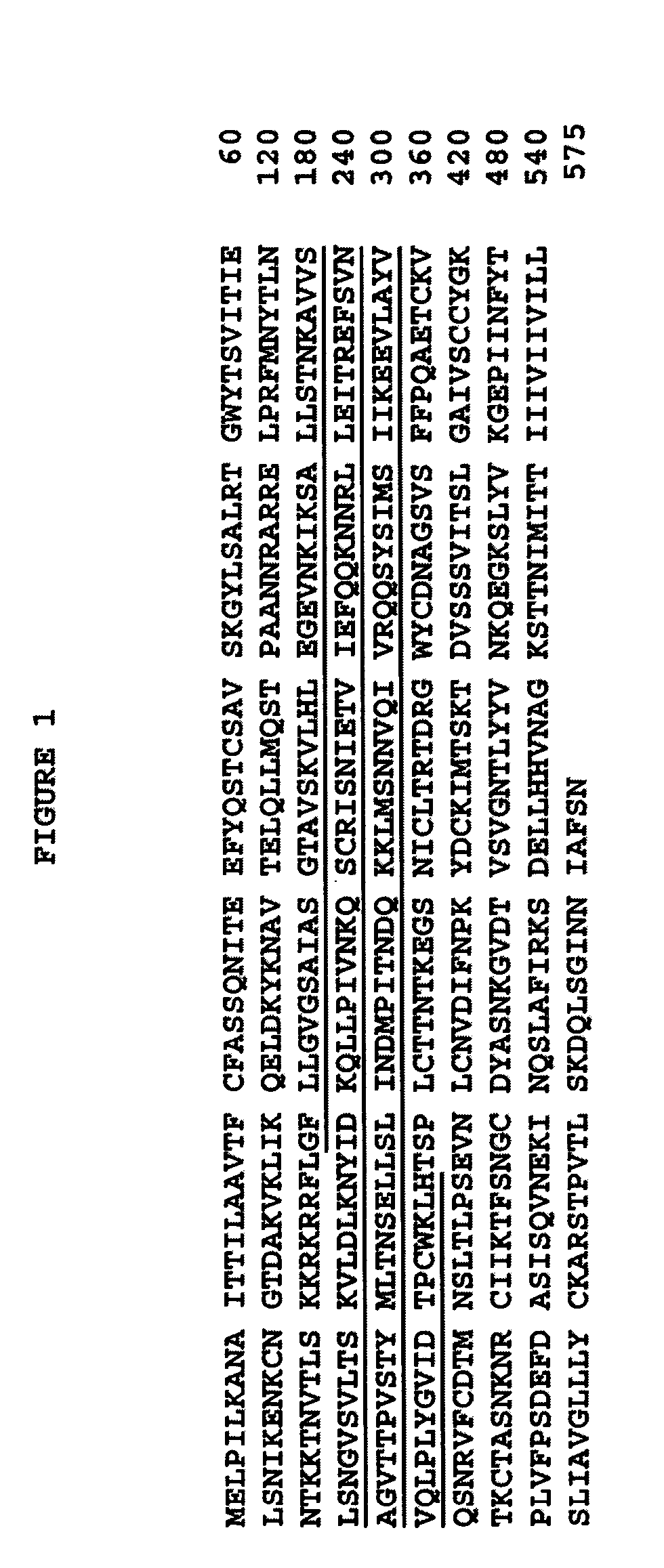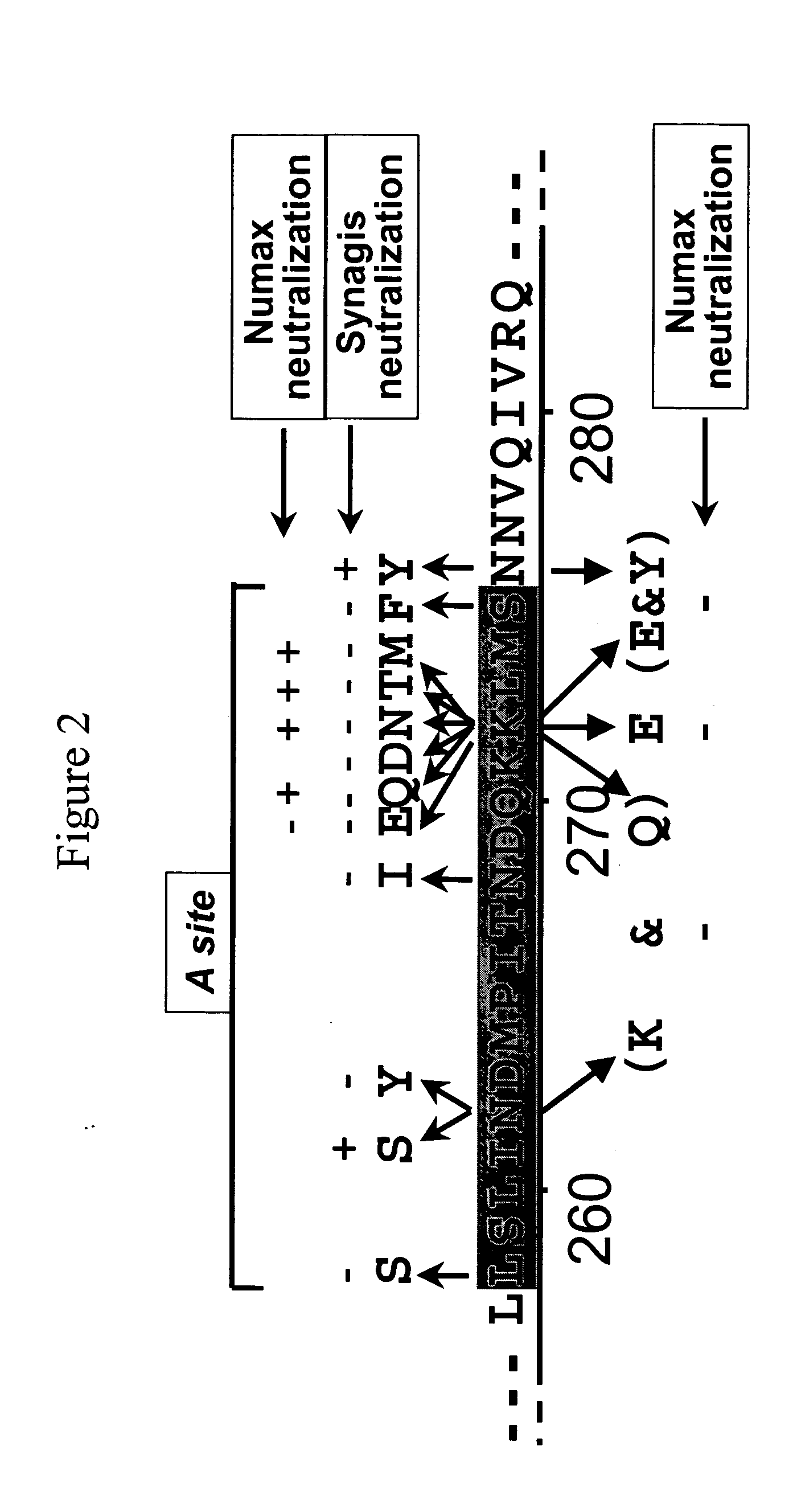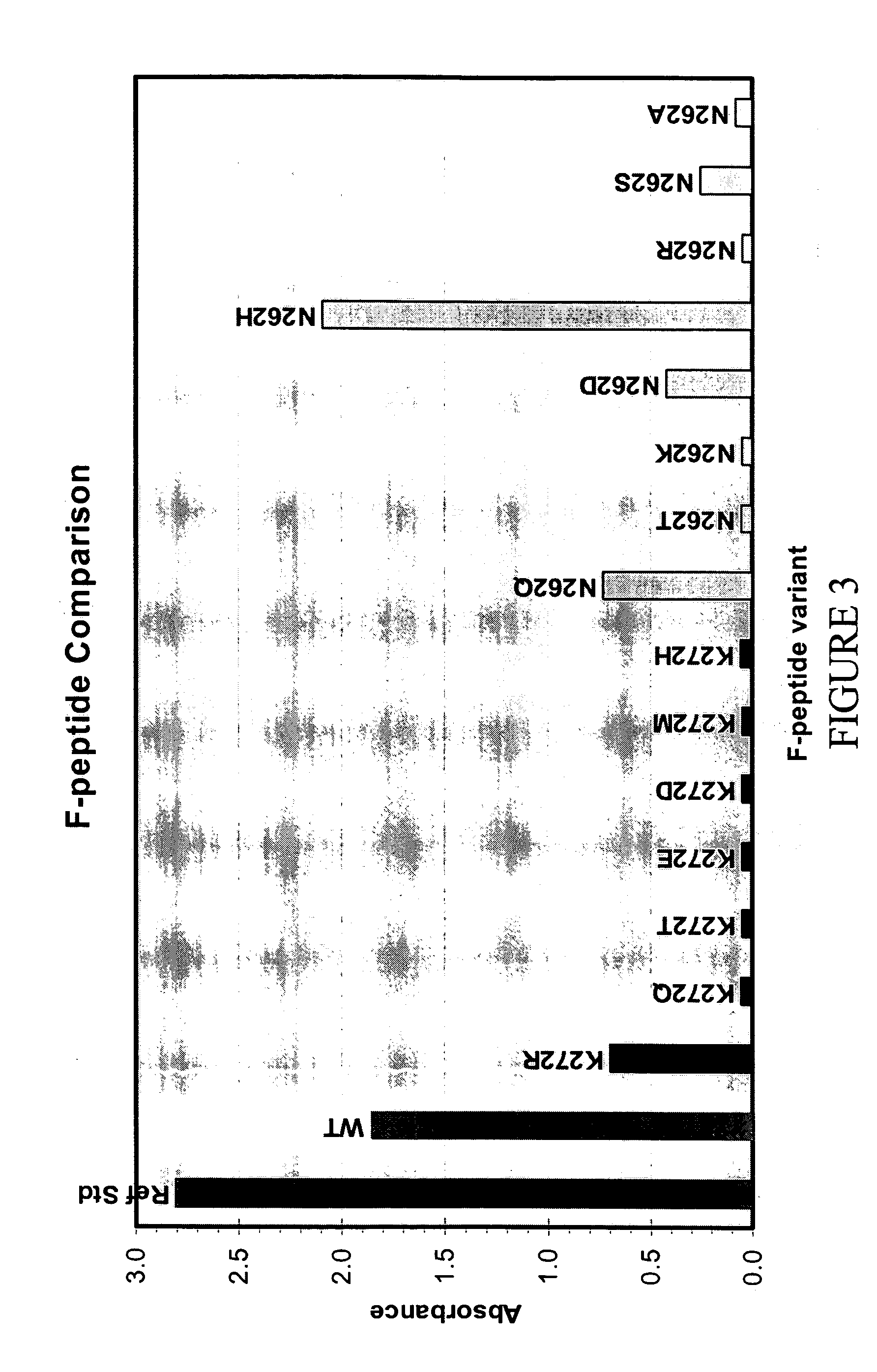Antibodies against and methods for producing vaccines for respiratory syncytial virus
a technology of respiratory syncytial virus and antibodies, which is applied in the field of pharmaceutical compositions, can solve the problems of limited treatment options for established respiratory syncytial virus, limited use of ribavirin, and no commercially available vaccine is yet licensed for this indication, and achieves the effect of preventing rsv infection
- Summary
- Abstract
- Description
- Claims
- Application Information
AI Technical Summary
Benefits of technology
Problems solved by technology
Method used
Image
Examples
example 1
Selection of Monoclonal Antibody Resistant Mutants (MARMs) to RSV
[0172] Hep-2 cells were infected in 24 well plates with RSV in the presence of an anti-RSV monoclonal antibody, such as, for instance, Synagis® (palivizumab) and / or Numax™ (motavizumab) or MEDI-524. The virus was passaged from wells which showed CPE two more times in the continued presence of the monoclonal antibody. The resulting plaques were purified two times in the presence of the monoclonal antibody. The virus was expanded to produce virus stock in the presence of the monoclonal antibody. Analysis of the viral mutants was performed by a microneutralization assay and IFA. Finally, the sequence of the mutant F protein was determined by standard methods. FIG. 2 shows the resulting MARM analysis for both Synagis® (palivizumab) and Numax™ (motavizumab). When the amino acid residue at position 272 was altered from a lysine (K) to a glutamic acid (E), both Synagis® and Numax™ longer neutralized RSV. All other mutations ...
example 2
Binding Elisa of F-Peptides
[0173] Based in part upon the results of the MARM analysis above, F peptides were synthesized (done by AnaSpec, Inc. San Jose, Calif.). Each well of the assay plate was coated with 50 ml / well of 4 mg / mL of a particular soluble RSV F-Peptide overnight at 2-8° C. After the plate was aspirated and washed with PBS / 0.05% Tween-20 buffer, it was blocked by incubating with PBS / 0.05% Tween-20 / 0.5% BSA buffer for one hour at ambient temperature. The plate was washed and MEDI-524 standard curve samples, test samples, MEDI-524 Reference Standard, and negative control were added to the washed plate. Following a one-hour incubation at ambient temperature, the plate was washed, and 50 ml per well of a goat anti-human IgG-HRP (horseradish peroxidase) at 1:16,000 dilution was added to the plate. After washing, 100 ml / well of 3,3′,5,5′-tetramethylbenzidine (TMB) substrate was then added to the plate and incubated at ambient temperature protected from light for 10 minutes....
example 3
Biacore Kinetic Analysis
[0174] All studies were performed using Sensor Chip CM5 (Biacore AB, Uppsala, Sweden) which contains a carboxymethyl (CM) dextran matrix and a Biacore® 3000 surface plasmon resonance (SPR) biosensor (Biacore AB, Uppsala, Sweden).
[0175] Numax™ was captured via a high-affinity interaction between the Fc portion of Numax™ and a goat anti-human IgG(Fc) (KPL, Inc., Gaithersburg, Md.). Goat anti-human IgG(Fc) was covalently attached to the CM dextran matrix using amine coupling chemistry. Two anti-human IgG(Fc)-specific surfaces were created. Numax™ was diluted to 10.9 μg / mL with HBS-EP and flowed for 1 min. across one of the anti-human IgG (Fc) surfaces at a flow rate of 5 μL / min. The other anti-human IgG(Fc) surface was used as a reference surface. F peptide was prepared by dilution in HBS-EP (0.01 M Hepes pH 7.4, 0.15 M NaCl, 3 mM EDTA, 0.005% surfactant P20) to a final concentration of 100 nM. F peptide was injected for 1 min. in a serial-flow manner across t...
PUM
| Property | Measurement | Unit |
|---|---|---|
| temperature | aaaaa | aaaaa |
| flow rate | aaaaa | aaaaa |
| pH | aaaaa | aaaaa |
Abstract
Description
Claims
Application Information
 Login to View More
Login to View More - R&D
- Intellectual Property
- Life Sciences
- Materials
- Tech Scout
- Unparalleled Data Quality
- Higher Quality Content
- 60% Fewer Hallucinations
Browse by: Latest US Patents, China's latest patents, Technical Efficacy Thesaurus, Application Domain, Technology Topic, Popular Technical Reports.
© 2025 PatSnap. All rights reserved.Legal|Privacy policy|Modern Slavery Act Transparency Statement|Sitemap|About US| Contact US: help@patsnap.com



